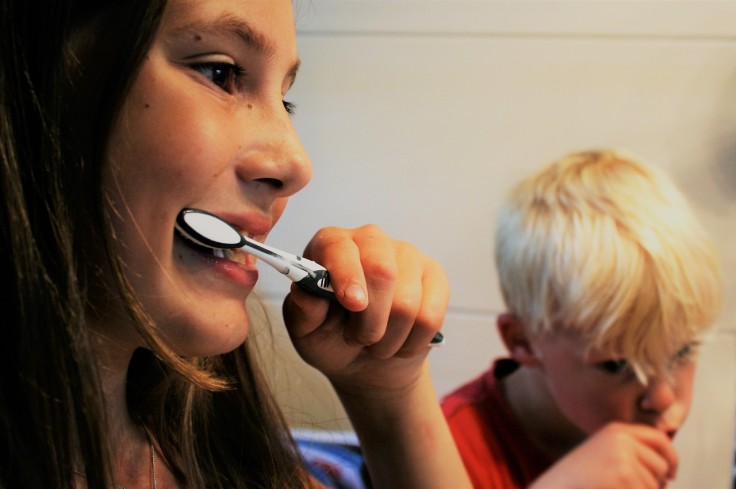
Teaching kids good oral hygiene should start early. The earlier they develop the habit, the better it is for their overall dental health.
Oral health is critical to attaining overall health. Having poor oral health can affect a person's confidence, not to mention the ability to speak, smile, chew, and swallow. Poor oral health is also linked to a number of conditions including cardiovascular disease.
Teach your kids good oral hygiene in 6 ways
Simply telling them to brush twice daily may not be enough. Some kids may need some motivation so they will treat as an important part of their daily routine. Here are some ways to help kids develop good oral hygiene.
1. Set a good example
Nothing beats setting a good example for your children. That is how they learn in the first place, by imitating what they see. Show them that you also practice good oral hygiene yourself. Brush your teeth regularly, at least two times a day for not less than two minutes.
Also, don't forget to floss your teeth at least once a day too. This helps eliminates bad bacteria that cause tooth decay and plaque as well as remove pieces of food that bristles can't reach.
2. Provide supplies kids will love using
Allow your children to choose their oral care supplies. There are plenty of toothbrushes, toothpaste, and rinsing cups that are made especially for kids. Some are made with cool cartoon character designs while some have bright colors and patterns that will surely attract their attention. Also, flavored toothpaste will help encourage them to brush more often.
3. Sing-along while brushing teeth
Kids learn quickly when paired with fun songs. Sing-along tunes for toothbrushing are a fun way to get teaching them good oral hygiene. Songs also allow kids to memorize information much faster.
4. Reward them
Providing your kids with rewards for brushing and flossing regularly will encourage them to develop good dental health habits. A reward can be as simple as a gold sticker to serve as points that you can give daily or weekly. You can give them a toy, dress, or supplies once they have collected a certain number of stickers.
Rewards don't need to be material things, though. It can also be doing activities like going to a movie, park, or as simple as letting them watch their favorite kids show for an extended time.
5. Incorporate playtime
Brushing and flossing need to be a fun activity so children will always look forward to it. You can include craft and games in your activity to make learning more fun. You can also ioin the activity and make it a fun family affair.
6. Encourage healthy eating habits
Teach your children to avoid sweets that could lead to tooth decay. Proper nutrition is the most effective way of promoting strong teeth. There are foods that are good for overall oral health, including fruits and vegetables and lean meats.
Apples and carrots, for example, are good at removing bacteria that are lingering on the surface of the teeth. Meanwhile, the protein found in white meat help makes the tooth enamel stronger. Yogurt and other low-fat dairy products, on the other hand, are good sources of calcium that help build strong teeth.
Discourage your children from excessive snacking. The more often they eat, the more likely they are to have food particles stuck between their teeth. If they like to chew gums, serve the sugar-free kind. The act of chewing help promote healthy teeth by dislodging food particles as well as increase salivary flow that neutralizes acid in the mouth.
Read also: